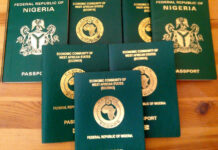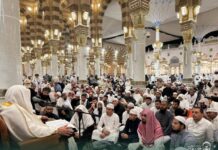In Ramadan, when we work hard to seek God’s love and closeness, we often focus exclusively on acts of worship: Reading more Quran, praying our Taraweeh regularly, giving more in charity, and paying our Zakat. While these are necessary, we should not neglect the internal state of our heart, as well as getting closer to our families, friends and neighbours. This is where mercy and forgiveness come in.
Read Also: How to deal with dehydration during Ramadan
There is no completeness of spirituality if you fast and you are not good or closer to your family at home.
Remember, fasting strengthens ties within our families, neighbours, friends and communities. Sahur and Iftar’s blessings arises from the spirit of sharing among ourselves. We can gather daily for fast-breaking dinners and community meals to break the fast after sunset.
Family togetherness during Ramadan is especially important for as it helps in Islamic socialisation. Children’s early experiences of Ramadan inform the feeling and memories they associate with this blessed month throughout their lives.
When I was a little boy, I remember vividly our iftar were usually a gathering of family members, friends and neighbours. I relish the family iftar where people bring out their specially prepared food and eat from each other’s pot. With joy, you eat from the delicacies. It was more like a feast every evening.
We thank Allah for decimating all the remains of coronavirus in our midst, therefore we can reignite that tradition of inspired generosity, spirit of sharing, love and togetherness including sharing food and inviting guests over for iftar. That is one of the blessings Ramadan is bringing to us.
Creating family iftar will also get the children excited about the month and the memories will also be with the for a long time just as the coming together to break their fast will bring inexplicable aura of blessings and sacredness about Ramadan and Islam.
[4/11, 19:02] Isholaism: Time to cleanse yourself of sins
Ramadan is the month of seeking forgiveness from sins. I have not forgotten the words of the old scholars who opined that the first ten days are for forgiveness of sins. The second ten days for blessings and mercies and the last ten days are for renewed life.
Whether the first, second or last ten days, what we cannot take away is that Ramadan is the month of forgiveness. The first ten has just passed. How have you been able to use the first ten days effectively. Note that, the whole month is about to pass away just as the first ten days have passed.
Ponder on how you got yourself in sins and how it has had negative impact in your life. With remorse, week forgiveness of sins, grow on the path of cleansing yourself from sin and make your life and the Hereafter better. Sins are those roadblocks that we personally put on our own paths to worldly happiness and in the hereafter. We engage in those sins by the hour – daily, weekly and yearly. Yet, do we repent from committing those sins? We we determined not to commit those sins again?
Ramadan provides us the opportunity to become a new born, and become closer to Allah. The Prophet (Peace and blessings of Allah be upon him) had said while he was ascending the minbar for a jumat pray that woe betide anyone who witness Ramadan and could not seek or get forgiveness of sins.
In another scenario, he said, “Every son of Adam sins and the best of the sinners are those who repent.” (Ibn Maajah). In this Ramadan, let’s strive not to be amongst those unfortunate ones who barely spend any time reflecting on their sins and transgressions.
Enjoy your Ramadan!






















